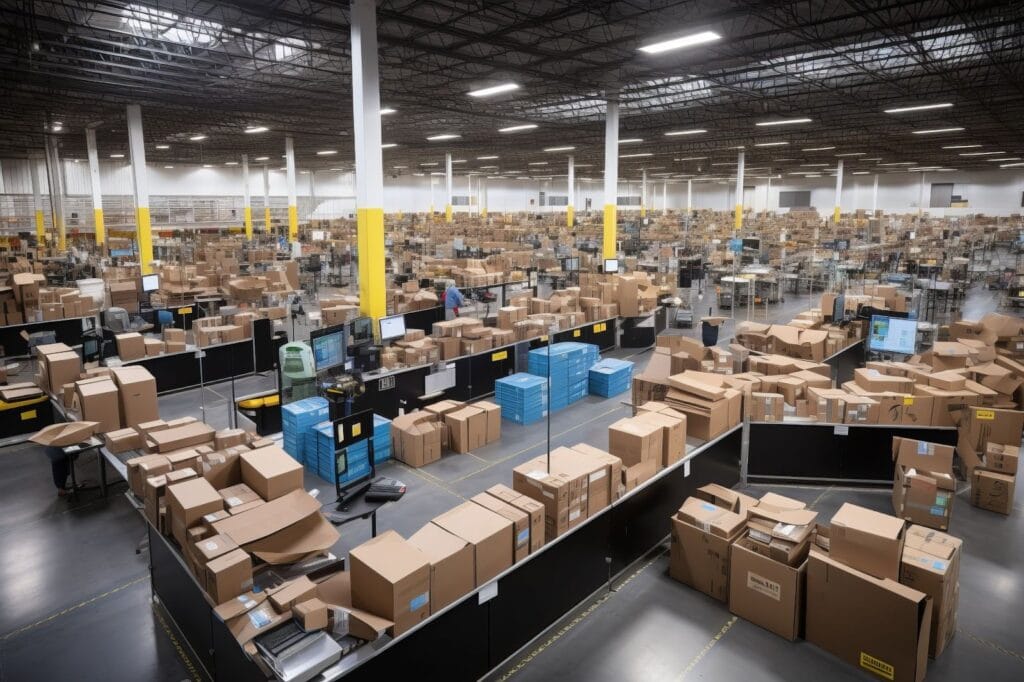Fulfillment Centers vs. Conventional Warehousing: Which is Better?

In today's fast-paced e-commerce landscape, companies are constantly looking for methods to improve their operational effectiveness and boost customer satisfaction. Such developments has led to the rise of fulfilment hubs, which are specifically crafted to simplify the process of holding, picking, packing, and distributing products. With more retailers transition their focus from traditional storage facilities to these dedicated hubs, the inquiry arises: what benefits do the benefits of fulfilment centres versus conventional storage solutions?
Fulfilment centres not only provide a method to control inventory but also provide a range of solutions tailored to satisfy the demands of modern stores. From advanced technology that mechanizes processes to strategic locations that shorten shipping durations, fulfilment centres are growing increasingly favored for businesses aiming to enhance their supply chain. This article will examine the key differences between fulfilment centres and traditional storage, aiding you determine which option may be most suitable for your company.
Understanding Fulfillment Hubs
Fulfillment centers are specialized locations designed to simplify the method of fulfilling orders for online retailers. Differing from conventional storage facilities, that mainly concentrate on holding goods, fulfilment centres provide a holistic service that includes selecting, packing, and dispatching products straight to buyers. This renders them crucial for companies aiming to improve their logistics and expand operations in the contemporary fast-paced market.
A notable characteristic of fulfillment centers is their capacity to skillfully handle inventory and process a large number of requests. They use advanced technology and automation to monitor inventory, fulfill orders promptly, and minimize mistakes. This effectiveness not only accelerates shipping durations but also enhances customer satisfaction, empowering businesses to preserve a competitive edge.
Additionally, fulfilment centres offer flexible solutions tailored to the requirements of diverse enterprises. Whether a firm is a young enterprise with few assets or an well-known retailer processing numerous orders each day, fulfillment centers can adjust their solutions to meet these needs. This scalability makes them an attractive option for companies looking to broaden their market presence while avoiding the difficulties of handling in-house logistics.
Advantages of Fulfilment Centres
Fulfilment centres offer numerous advantages that cater to the modern needs of digital commerce entities. One of the primary benefits is their ability to enhance order processing and shipping. By utilizing advanced technology and automated systems, fulfilment centres can quickly pick, pack, and ship products, significantly reducing delivery times. This effectiveness allows businesses to improve customer expectations for fast shipping, which is increasingly sought in the modern market.
Another advantage is the flexibility that fulfilment centre s provide. As businesses grow and their order volumes change, fulfilling those orders can become complicated and resource-intensive if managed internally. Fulfilment centres allow businesses to scale their operations up or down based on demand, without the need to spend on additional warehousing space or staffing. This flexibility leads to improved inventory management and financial efficiency.

Additionally, fulfilment centres often provide a variety of additional services that traditional warehousing typically does not. These can include inventory management, return logistics, and custom packaging options. Such services enable businesses to focus on their primary functions, like marketing and creating new products, while leaving logistics to specialists. This holistic approach can enhance overall customer happiness and drive repeat business.
When to consider to Opt for Conventional Warehousing
Selecting traditional warehousing can be helpful for companies that have consistent, foreseeable inventory needs. If your operation requires bulk storage and steady product demand, traditional warehousing tends to be a budget-friendly solution. This method is ideal for companies dealing with large quantities of goods which do not need frequent order fulfillment or fast shipping times.
Furthermore, is the level of customization you require for your storage and handling processes. Traditional warehouses often allow for more customized solutions concerning layout and inventory management than fulfilment centres. In case your business requires specific requirements for storage conditions, including temperature control or hazardous materials handling, traditional warehousing can provide the necessary resources to accommodate those needs.
Lastly, businesses that are well-established and have long-term contracts or agreements with suppliers may find traditional warehousing to be a more dependable option. This approach can help maintain solid relationships with suppliers and ensure that inventory levels are kept aligned with production schedules avoiding rapid replenishment that fulfilment centres might require.
